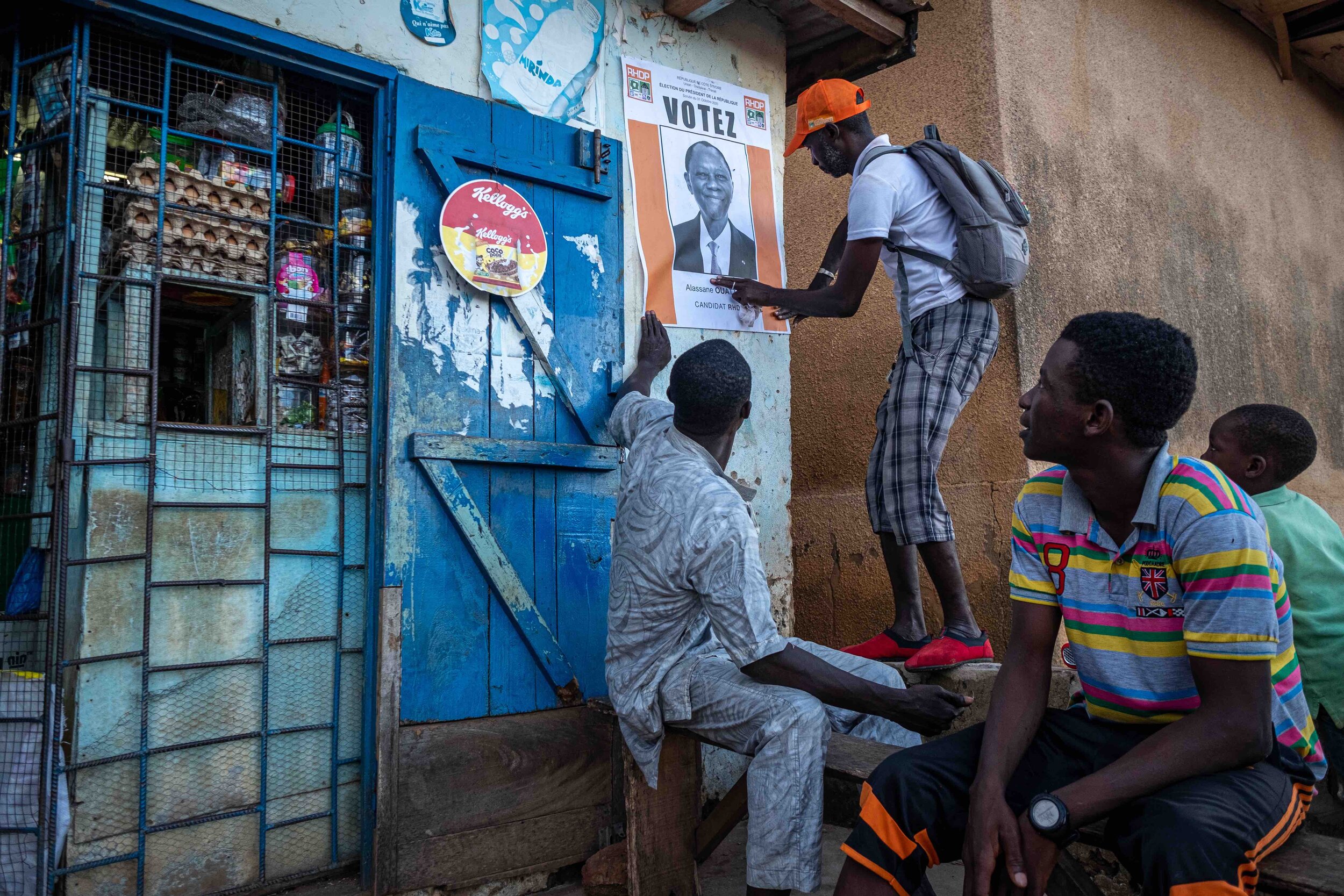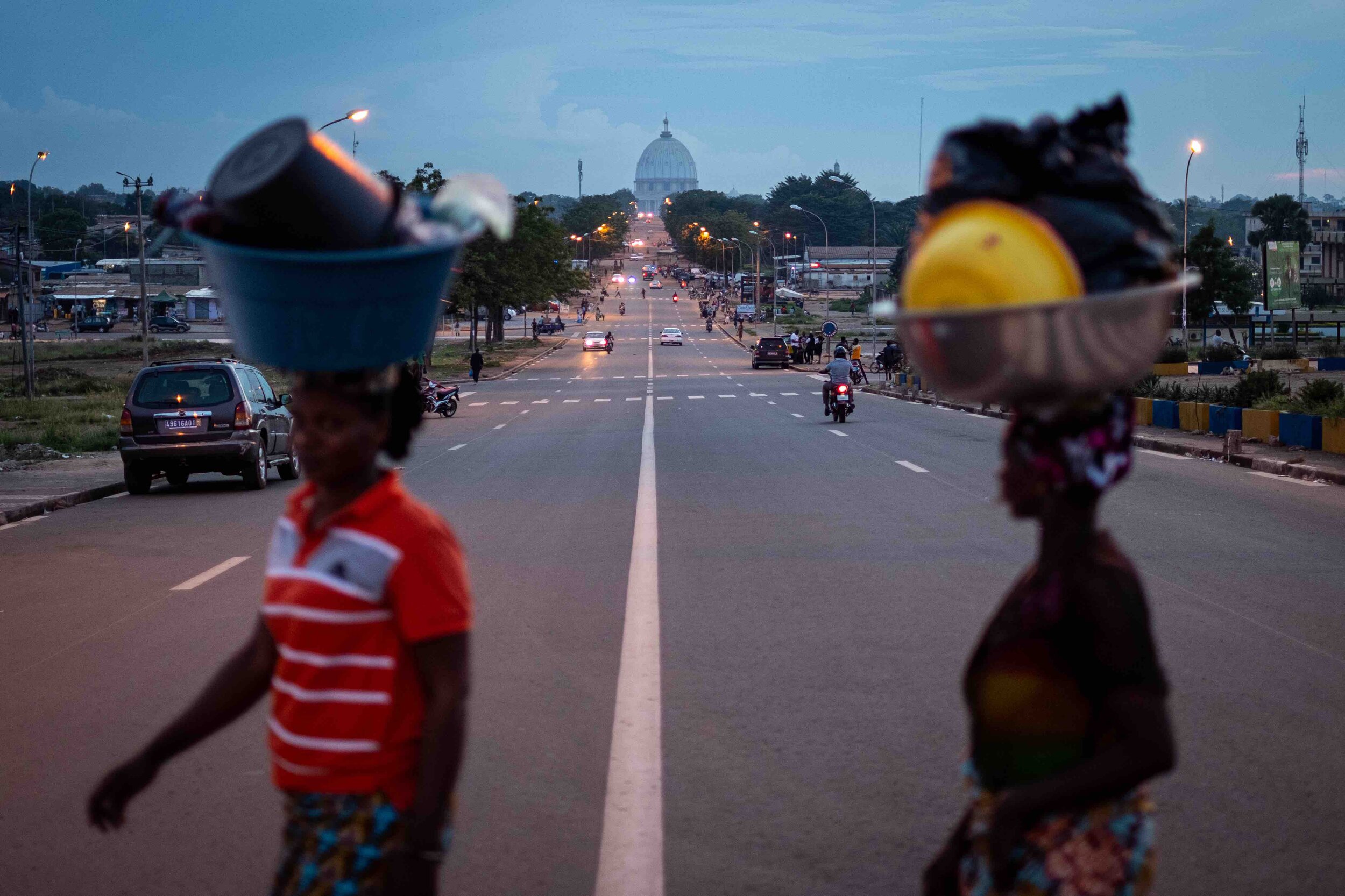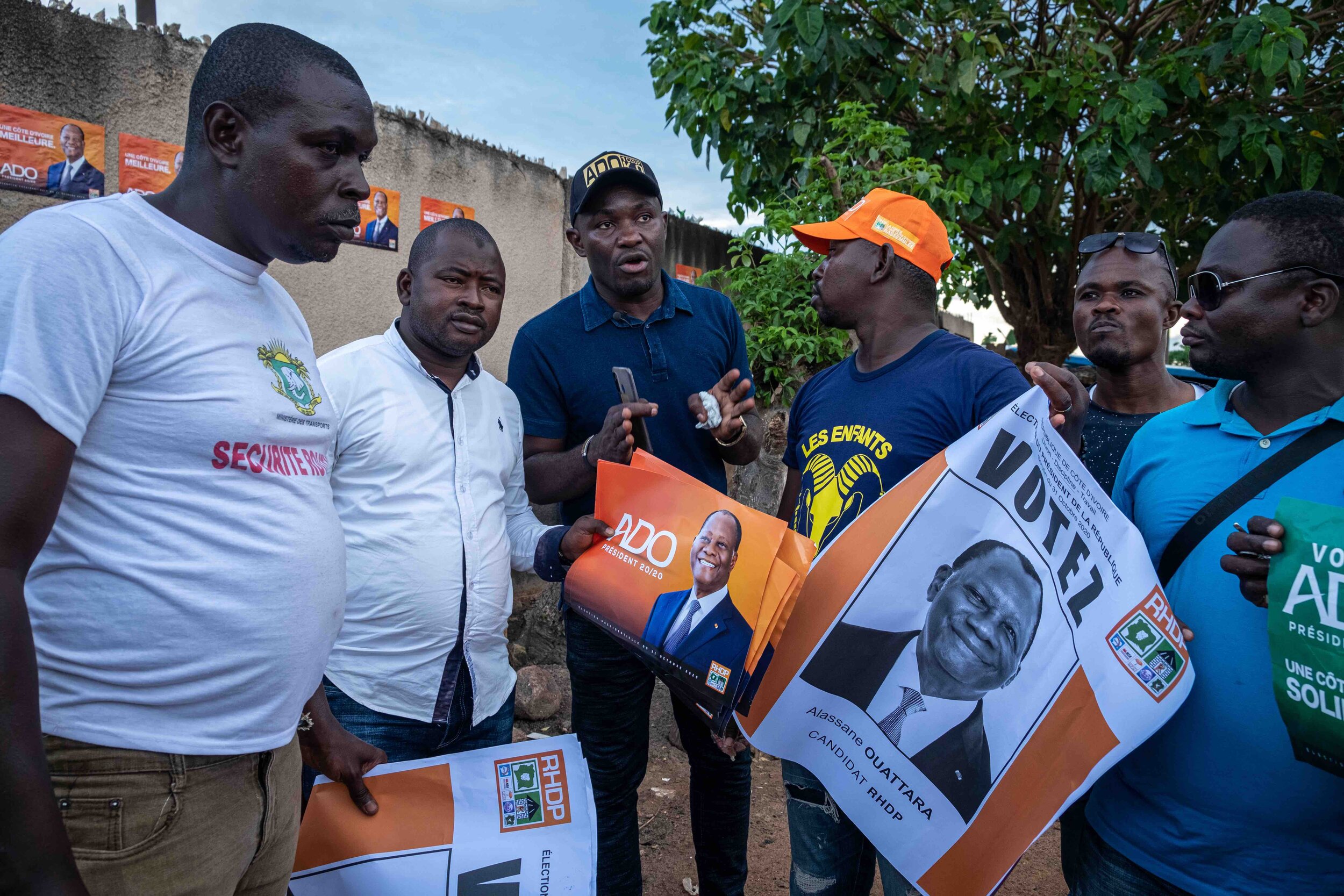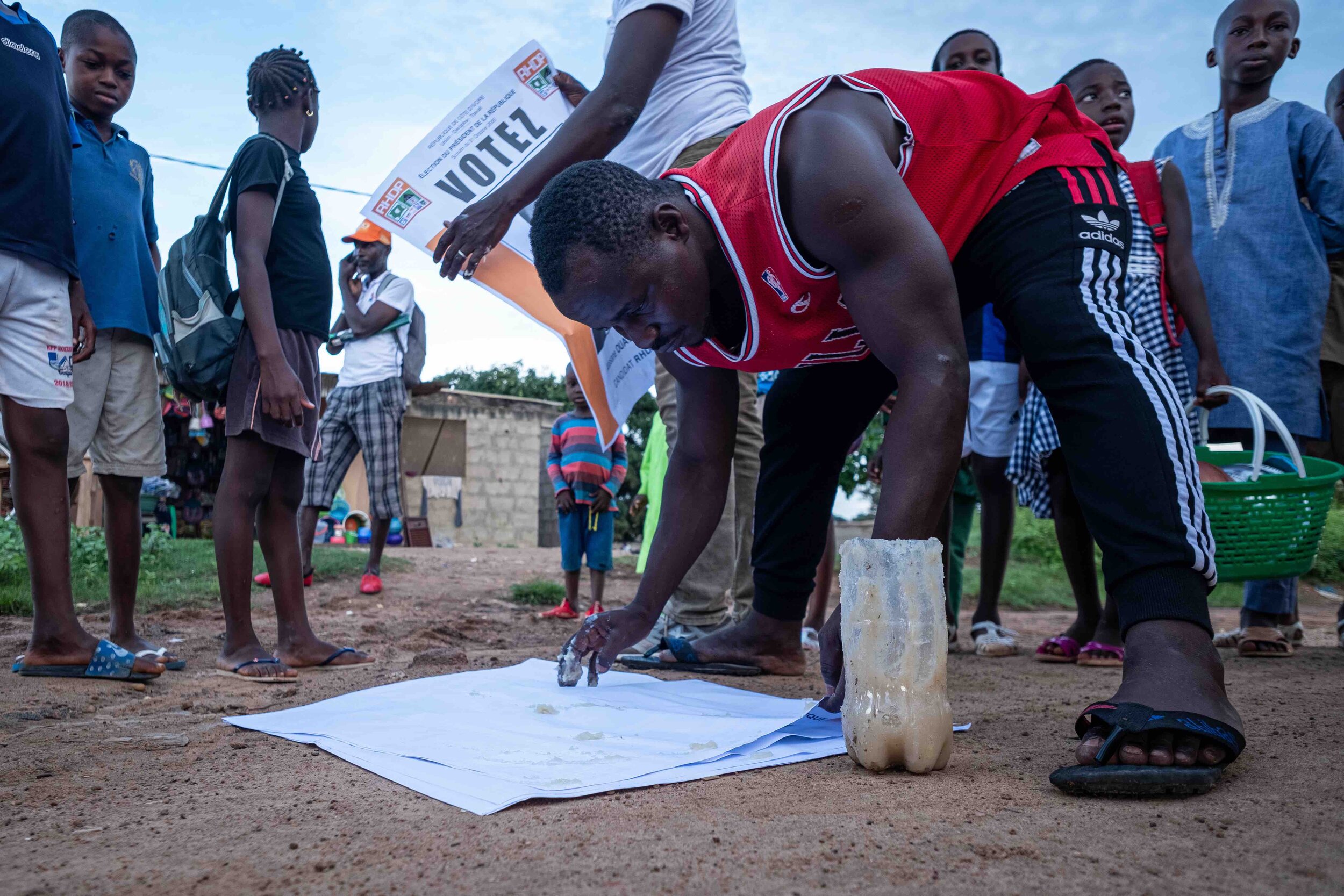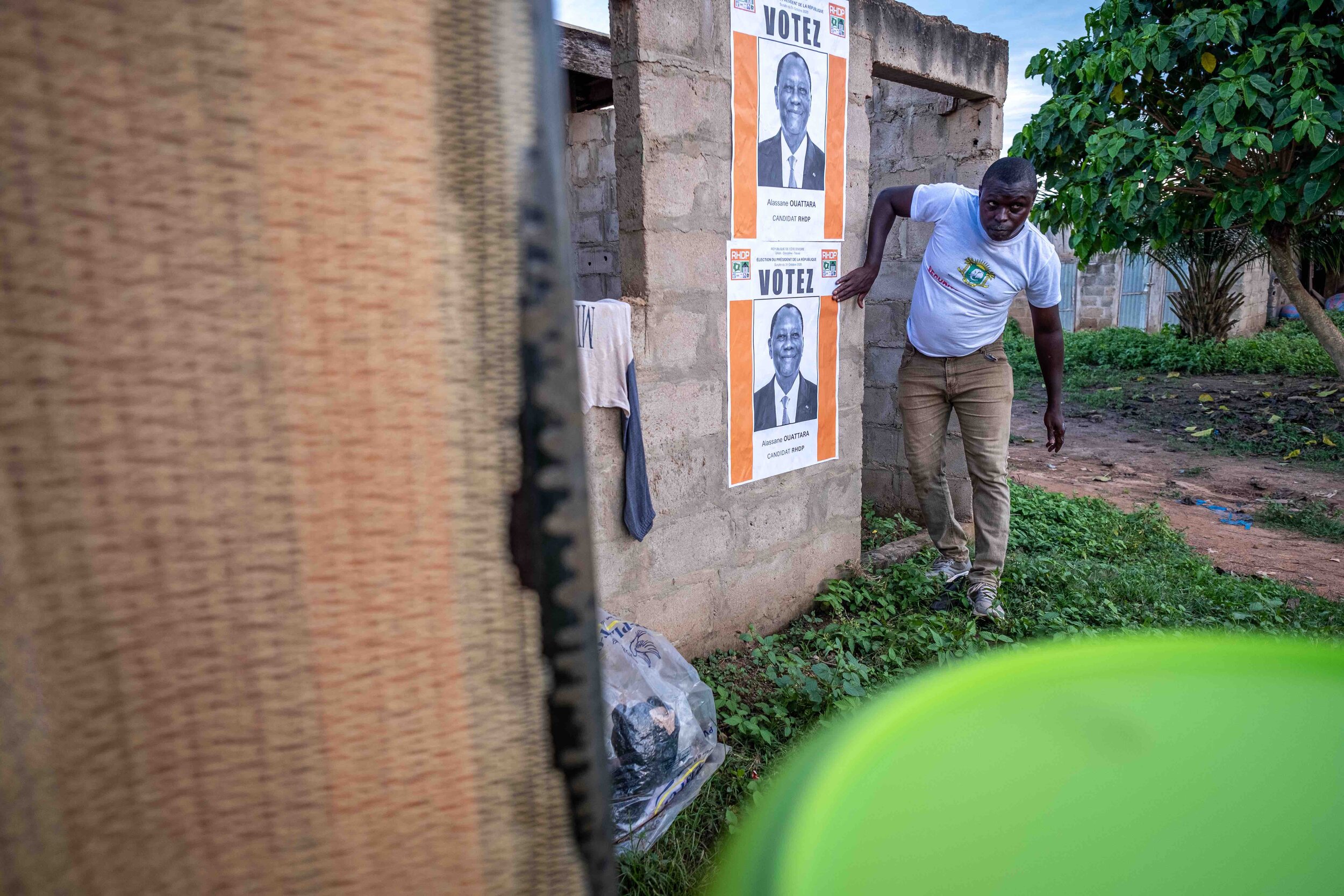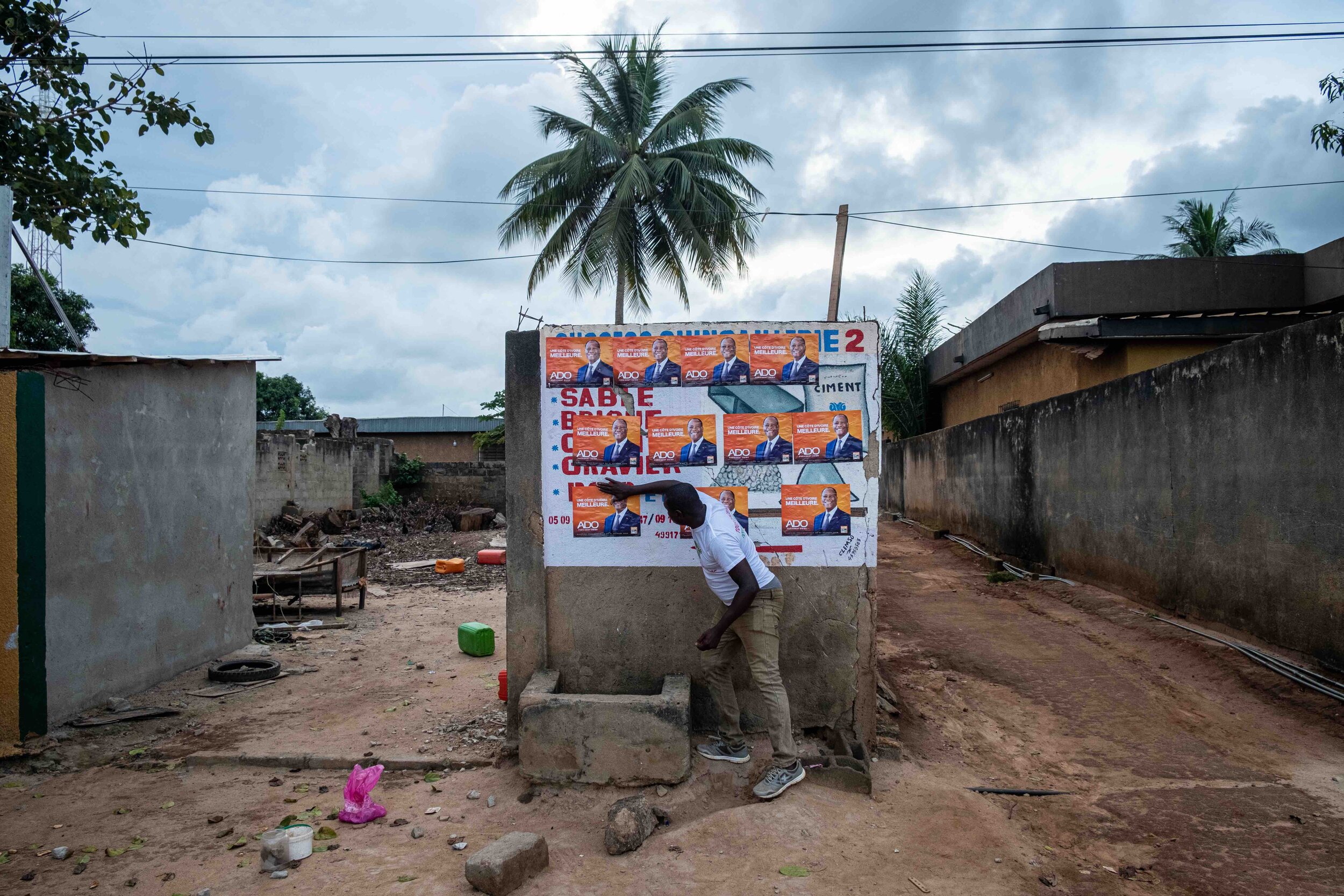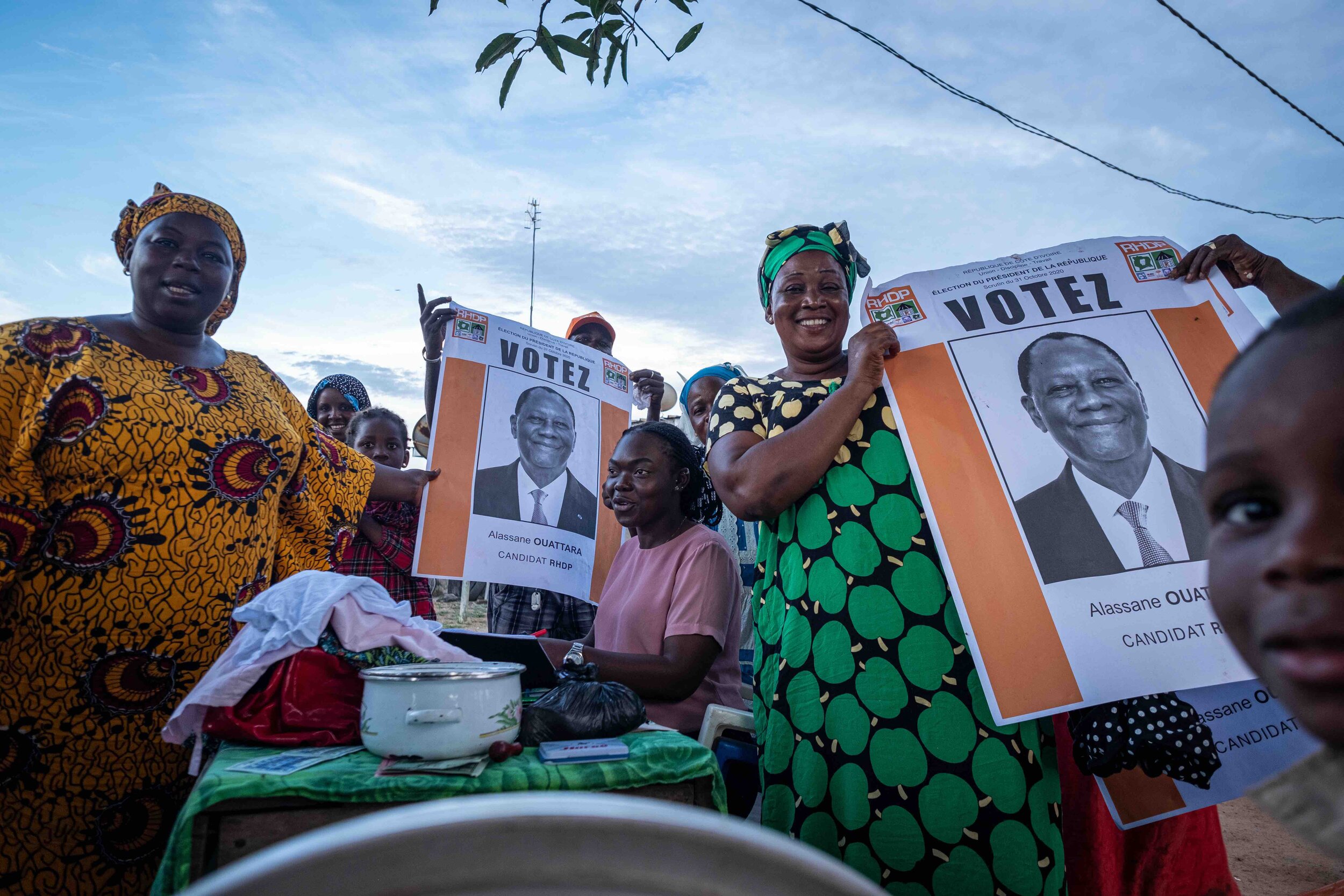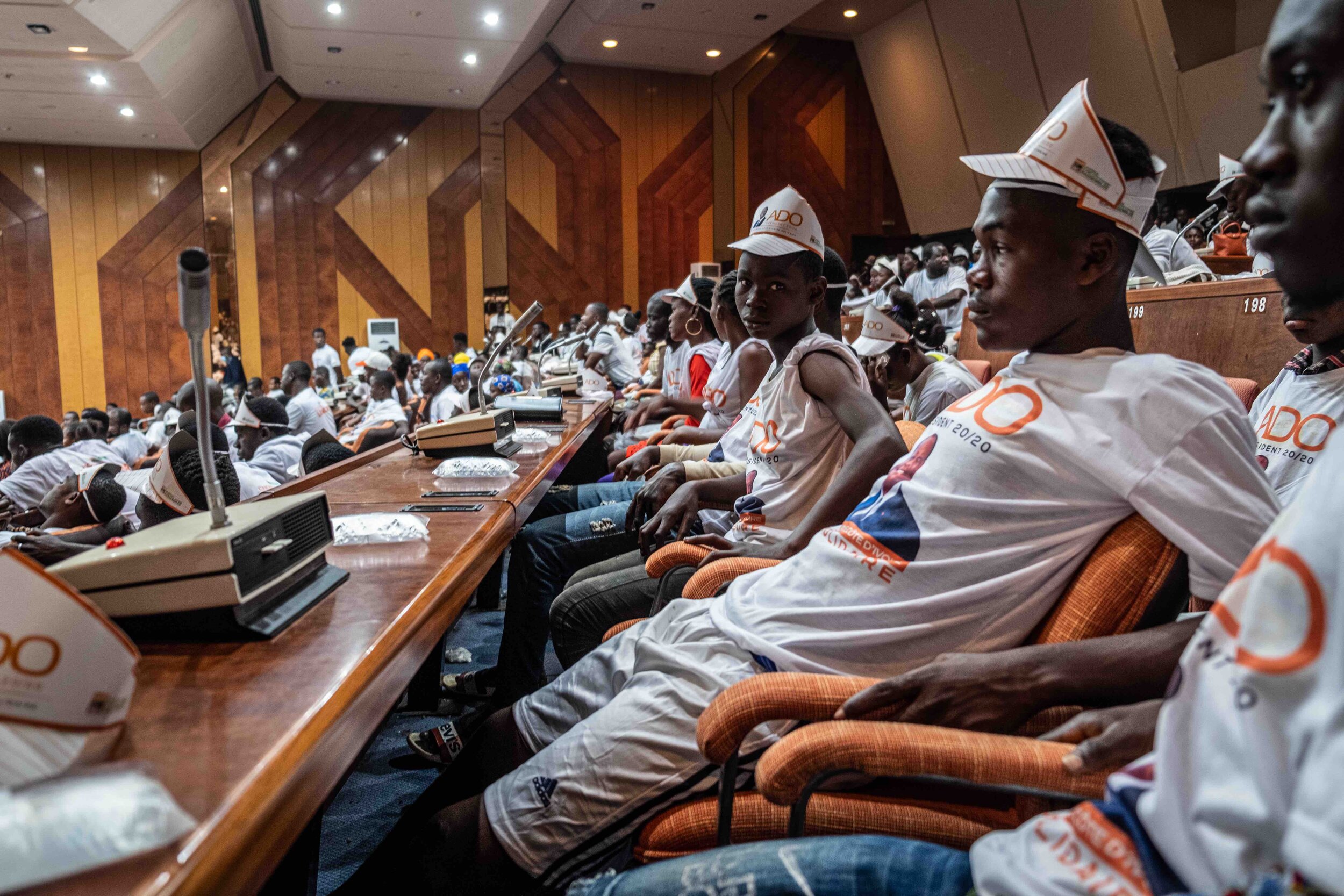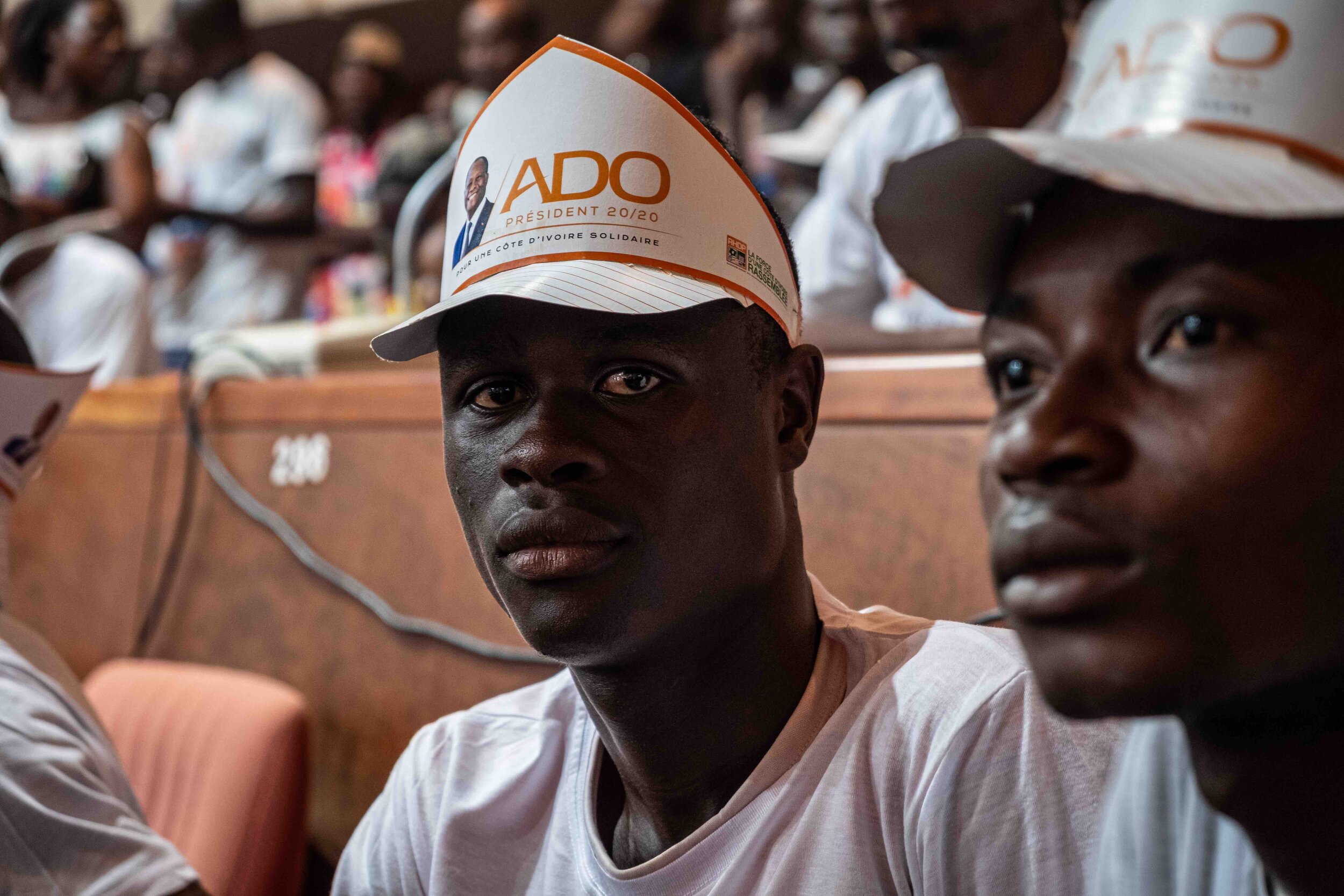“Ivory Coast is divided,” says Judicaël Yao (who wears a black cap), the coordinator for RHDP Yamoussoukro. “But even about Jesus Christ, people were not unanimous.” Judicaël's party leader and current president Alassane Ouattara decided to run for a third term, but opposition leaders say that this decision is unconstitutional. And so the opposition has urged voters to boycot the elections of upcoming Saturday.
In Ivory Coast’s capital Yamoussoukro, followers of Ouattara aren’t bothered by the claims of the opposition, as they put up posters of Ouattara as if the elections are running in a normal fashion. “Today, we believe that for the majority of Ivorians, those who want the happiness of our people, president Ouattara is the man who is needed,” Judicaël says. "In nine years, he has transformed Ivory Coast.” Ouattara has been praised for Ivory Coast’s economic growth: the average gross domestic product has grown around 8% per year since he came to power in 2011.
Still, Ivory Coast is on edge, and tensions are high. Fears of instability in the country rise, as electoral violence has already led to sixteen deaths in Abou, a commercial district 50 kilometers from Abidjan. The memories of post-election violence in 2010 and 2011, that killed some 3,000 people, are still fresh.
To learn about the elections, check out our reportage for RTL Nieuws or read Saskia Houttuin’s article for Dutch daily Trouw. To see some additional photography and reporting for VPRO, click here.
